Imaginary friends of the translator can be found in any language, complicating the learning process, and sometimes also greatly amused by their absurdity. What are they? Imaginary or false friends are words whose pronunciation resembles familiar words in your native language, but their meaning is often unrelated to a similar word.
There are a lot of similar examples in any language group, and therefore each foreign language center constantly focuses on them, allowing you to quickly memorize the correct meaning.
The translator's false friends – what are they like?
Celny – "celny" — has two meanings. And none of them is "whole", as you understand! This word means "accurate" or "customs", depending on the context. "Dywan" — "dywan" is still a carpet, not everyone's favorite piece of furniture. Among other funny examples , it is necessary to highlight:
Kawior ("cover") – caviar.
Tania ("tanya") – cheap.
Lustro ("lustro") – mirror.
Owoce ("ovoce") – fruits, fruits.
Czaszka ("cup") – a skull.
? yrandol ("girandol") – chandelier.
Warzywa ("vazhiva") – vegetables.
Fili? anka ("filizhanka") – a cup.
Pierogi are dumplings, not pies. Ogr? d – not a vegetable garden, but a garden. Another great example that inspires: the word "uroda" (freak). It is translated, surprisingly enough, as "beauty". And, for example, Salon Urody (Salon Freaks) – will be a beauty salon.
As you can see, because of such words, Polish can be difficult for beginners: a lot of words confuse and interfere with quick memorization. A good teacher who constantly pays attention to such incidents can cope with the problem, as well as independent work and rechecking of all words, phrases and any grammatical constructions for the presence of a "second" meaning that can confuse you.
What else is worth knowing about imaginary friends in Polish?
Most people think that it will be much easier for a native speaker of the Russian language to learn Polish because of one language group, but this is not entirely true. In fact, Polish and Russian do not have so many common features to really facilitate the learning process.
If we mention the Slavic group of languages, then learning can become easier for those who know the Belarusian language. Many words in it have similar roots and a similar meaning. For example, take the ever-memorable Lustro in Polish (a chandelier that is a "mirror", not a "chandelier"). In Russian, the word "chandelier" evokes only one association – indeed, a chandelier. Whereas the Belarusian language contains the word "chandelier", which translates exactly as "mirror", that is identical with Polish. Thus, false friends will be individual for each person, because they depend on what language the student is originally a native speaker of. Acesse All Slot Casino para uma experiência completa de cassino.
